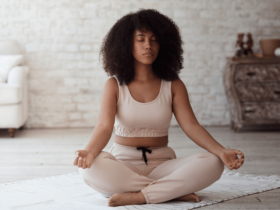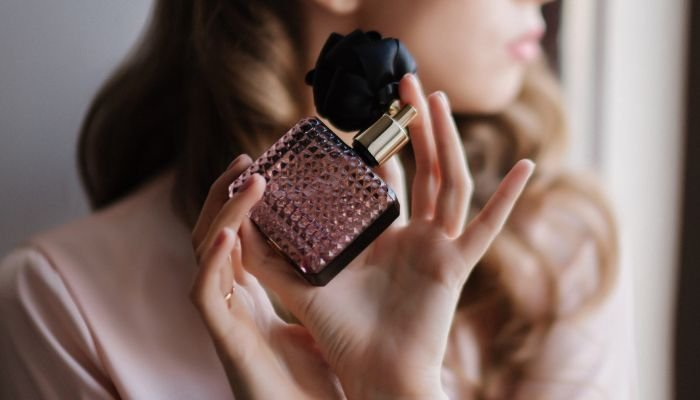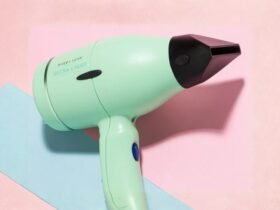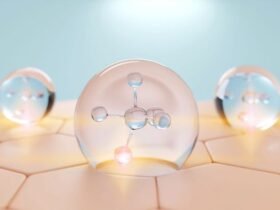Perfume is more than just a pleasant scent. For many women, it’s the invisible finishing touch that enhances confidence, mood, and personal style. But when your favorite fragrance fades too quickly, it can feel disappointing, especially when you’ve invested in a luxurious bottle. The good news? There are smart, science-backed ways to extend the life of your scent without needing to overspray or carry your bottle everywhere.
Understanding how perfume interacts with your skin, environment, and routine is key to unlocking lasting wear. With the right preparation and application methods, your fragrance can linger from morning to night no constant touch-ups required.
One Secret That Changes Everything: Moisture
Well-hydrated skin is the most powerful base for perfume. Scent molecules are naturally attracted to oils, not dryness. When your skin is dry, perfume evaporates faster and loses its complexity. But when your skin is moisturized, especially right after a shower, your fragrance adheres better and blooms slowly.
Use an unscented body lotion or a light oil before spraying your perfume. Doing this creates a subtle seal that traps the scent without overpowering it. If you’ve ever noticed your fragrance smelling stronger and richer in winter when you’re using thicker creams, now you know why.
Why You’re Spraying in the Wrong Places
We’ve all heard of applying perfume to pulse points like the neck and wrists. While this does help with projection due to body heat, it doesn’t always help with longevity. Warm zones make fragrance rise and disperse, which is great if you want people to notice your scent immediately. But for longer wear, cooler areas like your upper chest, inside the elbows, and even your clothes can be more effective.
Try combining warm and cool zones. For example, dab perfume on your wrists (for projection) and your collarbone or back of the shoulders (for longevity). Spray lightly on your clothes, too, especially on natural fabrics like cotton or wool, which hold fragrance longer than synthetic ones.
The Power of What’s Inside the Bottle
Fragrance formulas are designed in layers. Top notes fade quickly; they’re the citrusy, fruity, or green aromas you smell first. Middle (or heart) notes develop next and usually last longer, often containing floral or herbal elements. The base notes, such as vanilla, musk, amber, and woods, are what linger and determine how long your perfume truly lasts.
Perfumes with heavier base notes typically offer more staying power. So if your current favorite disappears fast, check the ingredients. A scent with more sandalwood, patchouli, or amber may stick around longer than one dominated by lighter, fresh top notes like bergamot or mint.
Also, consider the concentration level:
- Eau de toilette tends to last 2–4 hours
- Eau de parfum lasts 4–6 hours
- Parfum (or extrait) can linger for 8+ hours
A quick label check can help you understand what to expect no matter the price tag.
Your Storage Habits Might Be Ruining It
How you store your fragrance can dramatically impact its longevity. Heat, humidity, and sunlight break down the delicate balance of oils in your perfume, weakening both scent and staying power.
Avoid leaving your perfume in the bathroom, where steamy showers trigger chemical breakdown. Instead, store it in a drawer, a closed cabinet, or the back of your closet, anywhere dark, dry, and stable in temperature. Some women even keep their bottles in the fridge during summer. It may sound extra, but it works.
Layering Isn’t Just for Skincare
Want your perfume to last from your morning coffee to your evening wind-down? Try fragrance layering. This doesn’t mean mixing random scents. It means using products from the same scent family, body wash, lotion, and then perfume or choosing complementary notes that enhance your signature scent.
Layering locks the fragrance into the skin’s moisture barrier and helps each stage of the perfume unfold with more depth. You can also blend two perfumes creatively by testing them on cards before applying. Always spray the heavier scent first, then the lighter one on top.
Natural vs. Synthetic: What Actually Lasts Longer?
You might prefer natural fragrances made with essential oils, but they fade quicker than synthetics. Essential oils break down faster when exposed to air, light, and heat. Synthetic components, however, are designed to stay stable and resist those elements, which makes them better for longevity.
That doesn’t mean natural is bad, just that it may require more thoughtful use. In fact, some of the longest-lasting notes, like oud or resin, are natural. A good blend of both worlds often gives you the best results.
If your signature scent disappears before lunch, don’t give up or keep overspraying. Sometimes, it’s not about changing your perfume, it’s about changing how you wear it.
By prepping your skin, being mindful of where you apply it, and storing it right, you can unlock the full potential of every drop. Make your scent a part of your day, not just your morning.















Leave a Reply
View Comments